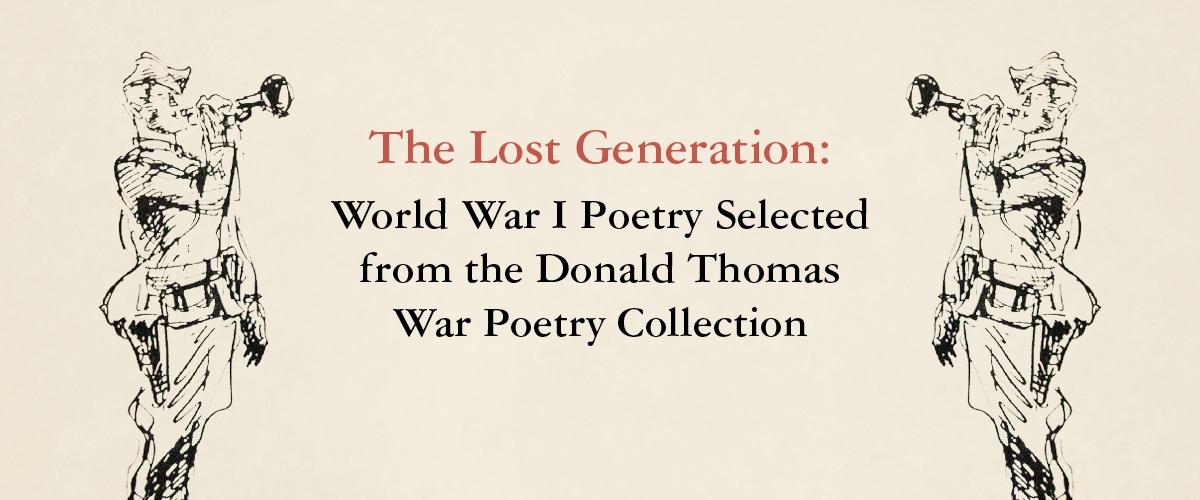If asked which twentieth-century war had the greatest impact on the world, the average American is likely to respond with World War II—and that conflict had an enormous effect in the staggering number of casualties, the number of nations engaged in the conflict, the introduction of nuclear weapons, and the ushering in of the Cold War. Despite this, for Europeans, and particularly for the British, World War I had an equal, if not greater, impact.
In the years prior to the First World War, Britain experienced the continued after effects of Victorian optimism. Some even referred to this Edwardian period as a time of endless summer, when people believed in progress, that everything was moving in a positive direction. Furthermore, in the second half of the nineteenth century war remained a romanticized phenomenon, with patriotism and gallantry as its primary features. World War I, or the Great War, as it came to be known, exploded those notions—quite literally. Because of extensive and entangling alliances, the conflict evolved from relatively insignificant origins (the assassination of Archduke Ferdinand of the Austro-Hungarian empire) to involve a greater portion of the developed world. Beyond the sheer number of nations involved, it was a war unlike any previous one, depending less on troop numbers and movement and more on technological superiority and military prowess. It was the first conflict in which weaponry became especially important, with the introduction of U-boats, aerial dogfights, Zeppelin bombings, gas attacks, trench battles, and tank warfare. The effect was a dehumanized conflict in which the superior machine mattered more than the superior soldier.
Perhaps most significant, however, was the enormous number of young soldiers who were either killed or wounded in the conflict. As Ezra Pound was to write, “There died a myriad / And of the best, among them” (Hugh Selwyn Mauberley), and for poets during and after the conflict the world would no longer be the same. All of the pre-war optimism disappeared, as did confidence in the traditional Western way of looking at the world. In its place was a profound skepticism of meaning in the universe and of the privileged position of the West, as well as an increased feeling that individuals were ultimately isolated from the workings of the universe and even from their fellow humans. What followed has come to be known as the “lost generation”— writers who longed for meaning and order in the universe but were unable to find them in an alienating and fragmented existence.
Because of the pre-war optimism and the romanticized view of warfare, those writers who entered the conflict were entirely unprepared for what they encountered, and the primary power of their writings comes from the profound disillusionment they experienced. Rather than patriotism, glory, and honor, they found instead death, absurdity, and dehumanization. One of the most famous poems of the war, Wilfred Owen’s “Dulce et Decorum Est,” rejects the romantic view that it is sweet and fitting to die for one’s country: the poem’s effect comes partly from Owen’s descriptions of battle but more from the conflict between what he had been taught was war and what he actually found was war. This was the lesson writer after writer learned, and it is reflected in the works of so many who wrote of their experiences.
This exhibit and catalogue explore the work of many such “soldier poets,” whose aesthetically rich and haunting verse often sits uncomfortably alongside popular ballads, songs and toasts that attempt to sustain, or gently mock, the romanticized ideals of heroic self-sacrifice for the nation’s glory. In between these opposed perspectives we find responses to the war, both critical and laudatory, from poets who did not enlist, including women on the home front and those in active service as nurses. To set these perspectives in context, we add sections on visual images of war, particularly photography and poets’ responses to this documentary technology, and retrospective collections that advocate for peace in the aftermath of the Great War and on the eve of WWII.
